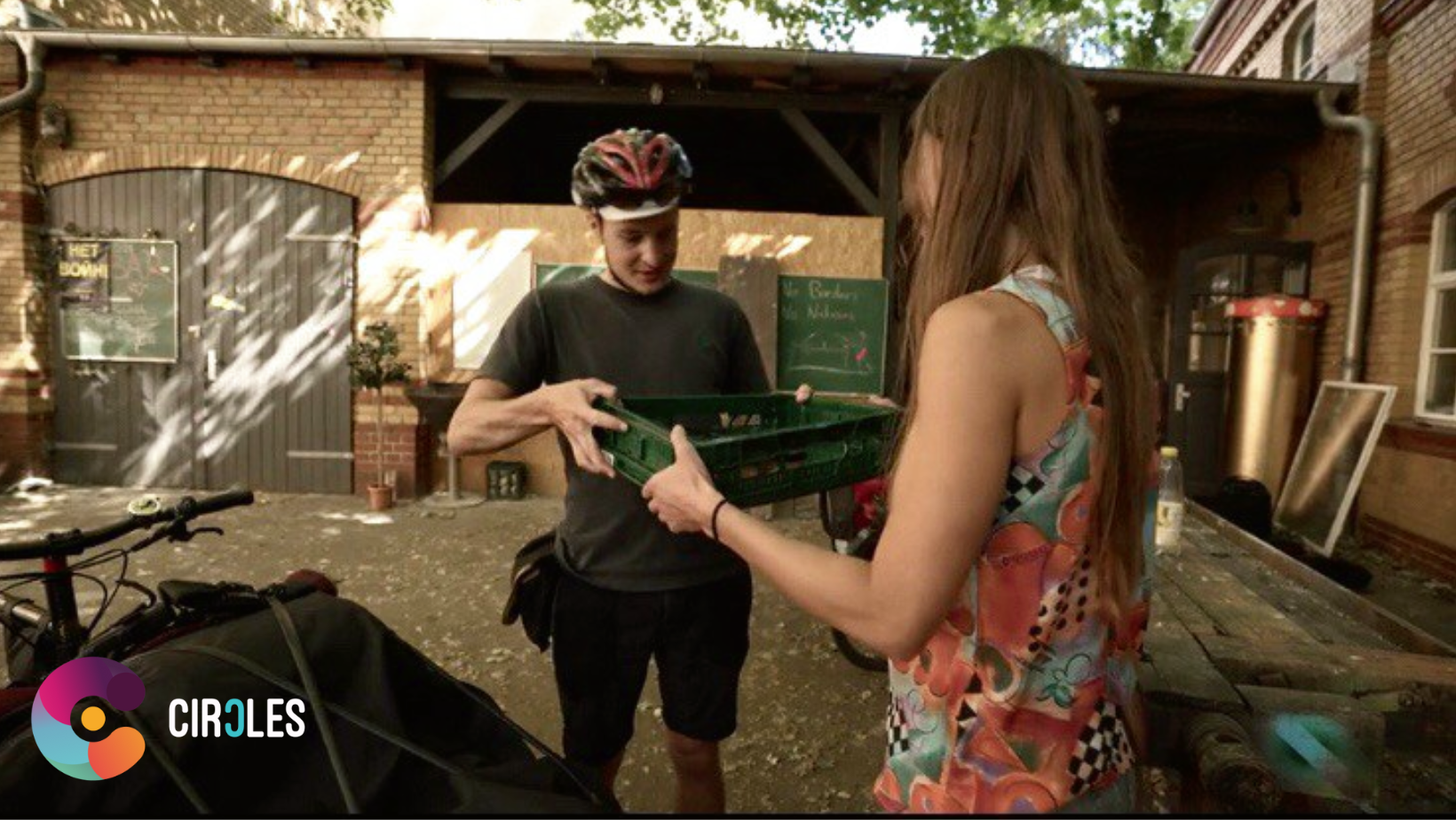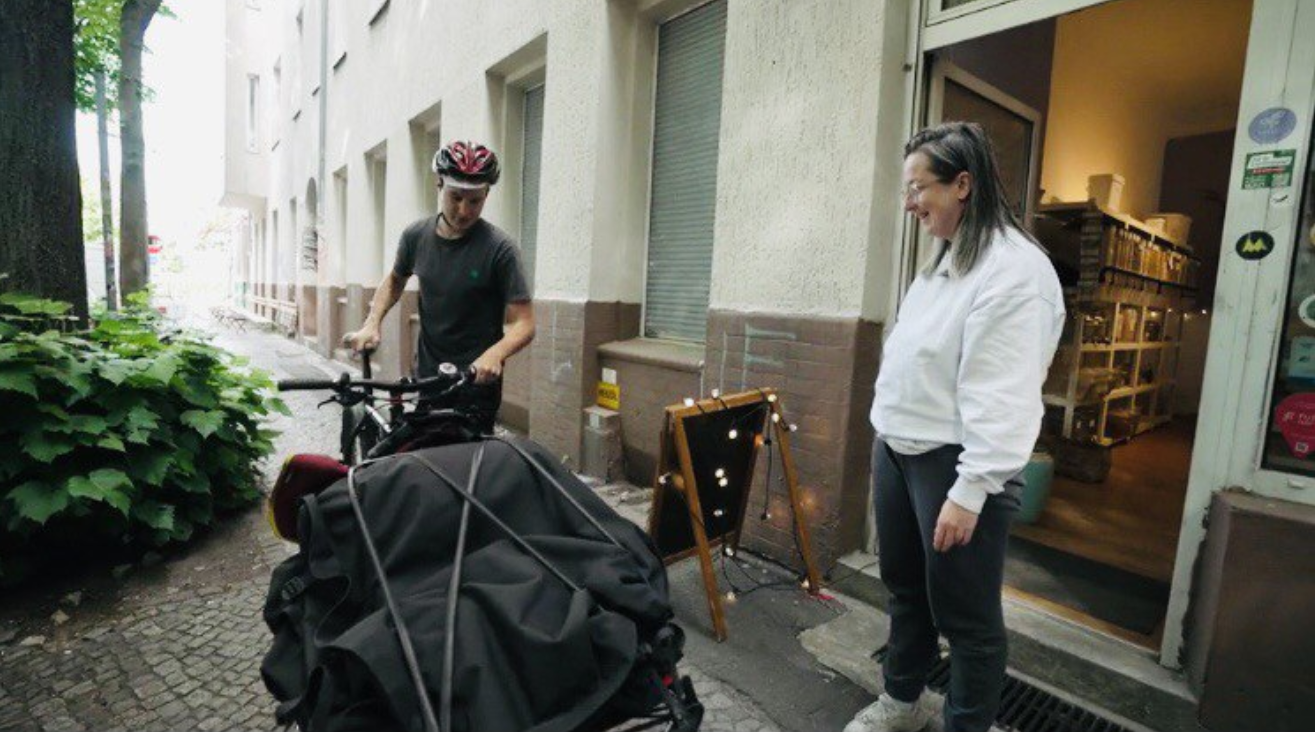Closing Loops with Circles
Circles is a powerful tool for communities to provide each other with a basic income. For Circles to work, it requires strong community ties and a proactive commitment to creating value in the system by providing products and services in exchange for CRC. Creating circular local exchange loops is one of the most important aspects of a sustainable economy. It's vital for our business partners to create these loops by providing their supplies by using their CRC while offering their products in CRC as well. Check out the video below to see how these economic circles work now in the Berlin Pilot Project.
Empirical studies suggest that the presence of a complementary currency in a local economy reduces liquidity risk by balancing the payments systems, reduces systemic risk by stabilizing the macro economy, and enhances the local multiplier effect and velocity of circulation. A complementary currency system has also been implemented in humanitarian-development projects where local development, community empowerment, and humanitarian intervention necessarily need to be linked.
Creating economic loops in the system happens when businesses get their supplies or individual needs from local sources. In the Circles system, this happens via CRC being used to cover some of the expenses for the business, while creating a local economic network. There are many examples of how our businesses and users circulate the CRC, giving value back to the local economy. In this video, you will find these examples of how businesses in our Berlin pilot project are circulating CRC by using them for their business and individual needs.
Herbie Unverpackt, a zero-waste shop, buys the products of Edible Alchemy, Tiny Farms, Roots Radicals, Madamezorro, and Colorin Colorado, and the products are delivered by Crow Bicycle Delivery. The payments are done by using CRC for all of these exchanges. Anja de la Peña, a therapist based in Berlin also offers sessions for CRC while spending her CRC in our local businesses. You will see her getting her clothing needs from Madamezorro in the video.
A unique example is a creative cooperation between Edible Alchemy and Colorin Colorado, both Circles partners of the Berlin Pilot project. Edible Alchemy created fermented goods and they needed pickle weights for their products. Colorin Colorado, a ceramic artist, created hand-crafted pickle weights for Edible Alchemy, which is also offered for individuals in exchange for CRC.
Roots Radicals also buys their veggies from Tiny Farms to make their sauces, then delivers the products via Crow Cyclery to the Circles monthly market or to Herbie Unverpackt, where they are sold to the users.
Most of our partners are able to use their CRC for their personal needs including care work. Some CRC from our business partners circulate to therapy and consulting sessions by Anja de la Peña, massage sessions by Lukas Brose, and all the other available products on the marketplace. Another great example is many of our business partners were able to join the Zero Waste Berlin Festival by renting out the stands by using their CRC, contributing to the festival, and local community as well as creating CRC exchange networks. The interconnectedness of the CRC transfer network makes the whole economy much more robust.
In addition to our business-to-business CRC loops, the individuals and the owner of the businesses are circulating CRC while meeting their individual needs and offering products and services to give back value to the system. With the availability of 19 official business partners and diverse offers by other businesses/individuals on our marketplace, closing the loops is much easier. Recently, Circles user Caro ran a one-week-long CRC experiment, showing how much one can cover their needs with CRC while creating individual loops. Being able to choose and explore our unique position in our local economy and community is our basic right, and with Circles, this is much easier!
YOU MIGHT ALSO LIKE







Dsrrptv + Dscntrlzd ≠ Dscnnctd: A Review on Disruptive Technologies and Data Protection